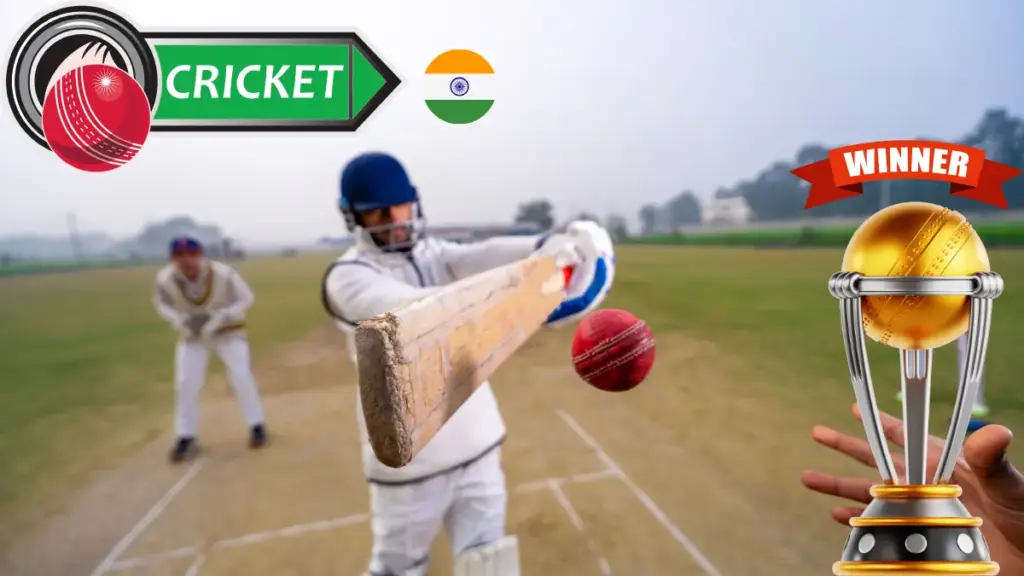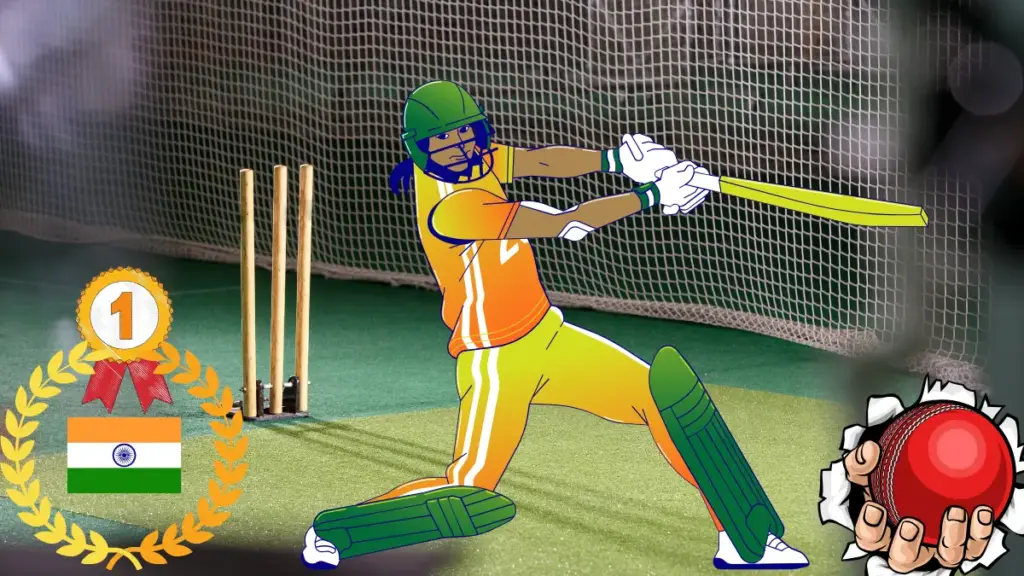Wondering how many World Cup India won in Cricket? If you think Cricket is just a sport, it is much more than that to Indians. It is something that’s a part of the country’s identity as a whole. That’s why millions of citizens revere it as a religion. No doubt, the Cricket World Cup, organized under the body of ICC, was an ultimate platform where the finest teams of the world vie for glory every four years, uniting people from different regions.
Indians see the World Cup as more than the quest for silverware. It is an opportunity for the country to show its sporting skills on the big stage, with victories that showcase their collective pride. From underdogs in the inaugural 1975 version to cricketing powerhouse. Now, one can see that the iconic 1983 World Cup win over the West Indies has redefined the country’s legacy.
Looking at this journey reminds us of other competitions that require resilience and strategy, just like the skills you need to succeed in games like 1Win Aviator. This sport demands strong decision-making skills.

In this article, you’ll discover how many World Cup India won in women’s cricket and everything else you need to know!
First Indian Victory in the World Cup (1983)
The first time Indians obtained their first World Cup was June 25, 1983. Kapil Dev helped achieve a historic 43-run victory over the West Indies in the final at Lord’s. So, they claimed their maiden international championship title!
The Historic Win Against the West Indies
India emerged as the winner against the mighty West Indies in 1983. This caused a defining moment in the country’s sports industry. This match was held on 25th June 1983 in London. The players could only manage 183 for the fall of wickets and at the individual level, Krishnamachari Srikkanth performed the best.
When the match was held out, West Indies seemed like the unbeatable monarchs of the scene. That’s because they’d won the other two preceding World Cups in 1975 and then 1978 which was led by Clive Lloyd, Viv Richards, Michael Holding along and Andy Roberts.
The good news? The team surprised everybody under the leadership of Kapil Dev. They call this one of the spectacular examples of will and talent triumphing over very challenging times! It was a stunning win that created a name for the country as a superpower for sports! So, if you’re wondering how many trophies India won in Cricket World Cup history, they had a good start in 1983.
The Role of Kapil Dev and the Underdogs
The turning point was Kapil’s captaincy and brilliance, which led to the country’s historic win of the World Cup in 1983. The most celebrated moment in the tournament took place in a crucial when Kapil Dev played an unforgettable inning. This unbeaten 175-run knock saved India from being knocked out in the very early stages of the game and rejuvenated the spirit within.
Though the match was not telecast due to a strike by the broadcasters, its aura remains genuinely legendary. Besides Kapil Dev, several players were significant during this journey. The final’s hero was Mohinder Amarnath, who contributed a critical 26 runs and bagged 3 wickets, one of them to signal the victory. Tournament top scorer with 18 scalps, Roger Binny, also showed his talent for consistency.
Key Highlights of the 1983 Victory include:
- Venue: Lord’s Cricket Ground, London
- Opponents: West Indies (Defending champions with two consecutive wins)
- Total Runs: 183 runs
- Key Players: Key Players: Kapil Dev as the team captain scored 175 runs for the team at the start of the match, Roger Binny who emerged as the match’s bowler with 18 wickets, and Mohinder Amarnath who scored 26 critical runs and bowled three wickets including the match clincher.
India’s Second World Cup Triumph (2007)
The country’s cricket team booked their second major intercontinental trophy in the year 2007. So, if you’re wondering, how many T20 World Cup India won in cricket? Here’s a recap of that memorable victory:
The 2007 Tournament Overview
The trick to a different type of international sports ground was officially unveiled during the 2007 ICC T20 World Cup. This cricketing nation could hardly pin any high expectations from their performance in this tournament since the majority of the great players such as Sachin Tendulkar, Rahul Dravid, Sourav Ganguly, etc. asserted they barely wanted to be a part.
MS Dhoni, whose captaincy will, in fact, go down as one of the greats, started with a new bunch of players. The final was played at the Wanderers Stadium Johannesburg on 24th September 2007, Gambhir’s knock of 75 runs and Rohit’s dabei of 30 runs helped the team set a fighting total. This was one moment in the history of the sport that the country won its first T20 World Cup.
Key Players and Moments in the Final
Key players and moments came together to shape the Indian victory in the 2007 T20 final but the defining performance was MS Dhoni’s singular captaincy. Dhoni marshalled his young team to inspire confidence in his charges. Gautam Gambhir anchored the country’s innings with a 75-run knock, anchoring a competitive total of 157/5 when Rohit Sharma’s cameos of 30 valuable runs in the death overs.
The climax of the match was, however, reserved for the very last over when, with 6 runs from 4 balls required and Misbah-ul-Haq at the crease attempting a scoop shot off the deliveries of Joginder Sharma, this time getting caught by Sreesanth to seal a win for the country.
It has, therefore, given the country the first T20 World Cup winner’s title, in addition to being the trigger for IPL-2008, thereby changing the game around the globe and sealing the country’s status as the premier challenger to Australia in this format.
India’s Third World Cup Victory (2011)
Ever wondered how many times India won World Cup in Cricket? After the victories of 1983 and 2007, the country began to aim even for other achievements, for a team of their own. The third of the country’s biggest victories in overseas conditions came in 2011 November at Wankhede Stadium, Mumbai. Here is the vision of that moment:
The Iconic 2011 World Cup Campaign
One of the most memorable moments was, of course, the 2011 ICC Cricket World Cup, as the event saw the country host the tournament jointly with its neighbours Sri Lanka and Bangladesh. Ending at Mumbai’s Wankhede Stadium, that campaign was a significant one, more so emotionally than anything else, for many stars on view, especially Sachin Tendulkar, since he had been chasing this for 22 years.
Under overwhelming pressure from over a billion fans, MS Dhoni transformed expectations into inspiration. Sri Lanka batted first in the final, posting a challenging 274/6, with a century from Mahela Jayawardene leading the way. Early wickets, including those of Virender Sehwag and Tendulkar, fell as India’s chase began to falter before Gautam Gambhir’s resilient 97 steadied the innings.
Promoting himself ahead of in-form Yuvraj Singh proved to be the masterstroke as he first stitched a match-winning partnership with Gambhir. Then Yuvraj guided the country toward its victory. Dhoni remained not out on 91 as he finished off the match with a six off Nuwan Kulasekara, giving the country its first ODI World Cup since 1983 and sending the entire nation into celebration.

MS Dhoni’s Leadership and the Winning Knock
MS Dhoni was instrumental in the county’s victory back in 2011. Nicknamed “Captain Cool” for being in a calm state amidst intense pressure, Dhoni, with bold decisions, notably promoted himself ahead of the in-form Yuvraj Singh to anchor the chase in the finals.
The move helped to keep the game from getting away from their control and successfully nullified the Sri Lankan leading spinner, Muttiah Muralitharan. Dhoni played an iconic unbeaten knock of 91 runs off 79 balls, including the very famous match-winning six.
Impact of MS Dhoni’s Leadership include:
- Took charge with a young and relatively inexperienced team.
- Displayed calmness under pressure, earning the nickname “Captain Cool.”
- Introduced bold strategies, like handing the last over to Joginder Sharma.
India’s Consistency in the World Cup: A Modern-Day Powerhouse
Since the fairy-tale victory in 2011, the country has grown to be one of the powerhouse sides of modern-day cricket and a permanent feature in the topmost rung of contenders for every tournament. Though they have not won another World Cup since then, the country has remained an immovable force, regularly getting into the knockout stages
Following is a table with the country’s performance in the 2015 and 2019 tournaments, mentioning key contributors:
| Year | Result | Notable Players |
| 2015 | Lost in Semi-finals | MS Dhoni, Virat Kohli, Rohit Sharma |
| 2019 | Lost in Semi-finals | Rohit Sharma, Jasprit Bumrah |
Strong Performances in Recent Tournaments
The country topped the group of defending champions in 2015, beating rivals Pakistan and Bangladesh, until they lost in the semi-finals to Australia by 95 runs. Key players like MS Dhoni, Virat Kohli, and Rohit Sharma played key roles.
India finished the group stage of the 2019 World Cup with just one loss against England. Rohit Sharma created history by scoring five centuries, and Jasprit Bumrah’s death bowling proved vital. They reached the semi-finals, where they were narrowly defeated by New Zealand in a rain-affected match, further showcasing their consistency as one of the world’s best teams.
Impact of India’s World Cup Wins on International Cricket
The wins of the country transformed the way international cricket is played, enjoyed, and marketed. After the country’s victory in 1983 against the West Indies and its victorious win in the T20 World Cup in 2007, the shape of the sport’s future course changed.
India’s Influence on Global Cricketing Nations
The country’s previous victories were a turning point in the conceptualization and launch of the Indian Premier League (IPL) in 2008. This league introduced the world to franchise cricket. The IPL changed the financial ecosystem of the sport, making it a multi-billion-dollar sport in the country. It has become a vehicle for young players all over the world to show their talents.
The exposure given by the IPL also raised the competitiveness of small cricketing nations like Afghanistan and Bangladesh because their players gained much international experience. Today, with this success, the T20 format is one of the most commercially lucrative formats in the sport.
India’s Status as a Cricketing Powerhouse
With its victories and financial clout, the country has emerged as the most powerful cricketing nation in the world. The BCCI is by far the wealthiest and most potent cricketing body in the world, occupying a position of dominance in international, commercial and regulatory affairs of the sport.
With India having a vast audience for the sport and a strong commercial market, the country naturally attracts a number of global sponsors, broadcasters, and advertisers. This makes the sport a critical revenue generator for the ICC and other cricket boards. In effect, the country now enjoys immense clout in major decisions, be it on tours, new formats, or the distribution of global cricketing events.
Looking Ahead: India’s Future in the Cricket World Cup
Cricket is undoubtedly one of the most popular sports in the Caribbean nation, and with the future focus looking even brighter the nation’s team has every reason to look forward to a brighter future. The elder players have laid a good foundation of young talents, unique coaching techniques, and vibrant followership, thus the country has a bright future in the international sector of the sport.
Preparing for the Next Challenge
With the next major international assignment on the horizon for the country, preparations for the team could not be more ramped up. The county’s cricket team under the able captaincy of Rohit Sharma is sharpening its each and every sword through camps, bilateral series, and best of all, match psyching scenarios.
The team’s blend of experience and youth has been a key factor in its success, with seasoned players like Virat Kohli, Jasprit Bumrah, and Hardik Pandya leading the charge. The emergence of talented youngsters like Shubman Gill and Kuldeep Yadav has added depth to the squad.
India’s preparations have been tailored to address specific challenges, with a focus on developing strategies for different playing conditions and opposition teams. With a strong support staff and a cohesive team environment, the country is well-equipped to take on the next challenge and make a strong bid for international glory.

Can India Repeat Its Historic Wins?
With a good mix of seasoned veterans and young rising stars, the country is well-placed to repeat past glories. The captaincy of Rohit Sharma, complemented by the brilliance of Virat Kohli, Jasprit Bumrah, and Hardik Pandya, surely provides a solid foundation. Home advantage, rigorous preparation, and a rounded squad give ample hope for chances to bring the World Cup glory back home.






